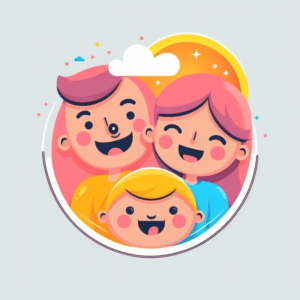What are the signs that my baby is ready for early education?
As a parent, you want to provide the best possible opportunities for your child to grow and develop. One of the most important decisions you’ll make is when to start your child’s education. The right time will depend on your child’s individual needs and abilities, but there are some signs that can indicate that your baby is ready for early education.
What is early education and why is it important?
Early education refers to the educational experiences that a child has before starting formal schooling. It can take many forms, including play-based learning, structured preschool programs, and even teaching at home. Research has shown that early education can have a significant impact on a child’s future success, including their academic achievement, socio-emotional development, and lifelong learning habits.
What are the benefits of early education?
There are many benefits to starting your child’s education early. Some of the most important include:
- Building a strong foundation for future learning: Early education helps children develop the skills and knowledge they need to succeed in school and beyond.
- Improving language and communication skills: Early education provides opportunities for children to practice and develop their language and communication skills.
- Developing social and emotional skills: Early education helps children learn to navigate relationships with others, express their emotions, and solve problems.
- Improving cognitive development: Early education can enhance a child’s cognitive development, including their ability to concentrate, think abstractly, and understand complex ideas.
What are the signs that my baby is ready for early education?
Here are some signs that your baby may be ready for early education:
- Curiosity and eagerness to learn: If your child shows an interest in exploring their environment and learning about new things, it may be a sign that they are ready for early education.
- Ability to follow simple directions: If your child is able to follow simple directions, such as “come here” or “put this away”, it may be a sign that they are ready for early education.
- Independence: If your child is starting to become more independent and wants to do things for themselves, it may be a sign that they are ready for early education.
- Good attention span: If your child can focus on an activity for a reasonable amount of time, it may be a sign that they are ready for early education.
- Enjoyment of play: If your child enjoys playing with other children and participating in structured activities, it may be a sign that they are ready for early education.
What are the options for early education?
There are many different options for early education, including:
- Play-based learning: This type of early education focuses on learning through play and exploration. Children are given the freedom to explore their environment and participate in activities that interest them.
- Preschool programs: Preschool programs are structured educational experiences for children before starting formal schooling. They often include a mix of play-based learning and more structured activities.
- Home-based education: Some parents choose to educate their children at home before starting formal schooling. This can be a great option for parents who want to be involved in their child’s education from an early age.
How can I choose the best option for my child?
The best option for your child will depend on their individual needs and abilities, as well as your family’s values and lifestyle. Some factors to consider when choosing an early education option include:
- Your child’s temperament and personality: Consider your child’s personality and how they are likely to respond to different early education options.
- Your goals for your child’s education: Think about what you want to achieve through early education and choose an option that aligns with your goals.
- Your family’s schedule and resources: Consider your family’s schedule and resources, including time, money, and support, when choosing an early education option.
- The availability of programs in your area: Research the early education options available in your area and choose one that fits your needs.
Conclusion
Starting your child’s education early can have a significant impact on their future success. It is important to consider your child’s individual needs and abilities, as well as your family’s values and lifestyle, when choosing an early education option. Whether you choose play-based learning, preschool programs, or home-based education, it is important to provide your child with opportunities to learn and grow in a supportive and stimulating environment.
FAQs
- What is the best age to start early education?
The best age to start early education will depend on your child’s individual needs and abilities. Some children may be ready for early education as young as 2 or 3 years old, while others may not be ready until they are 4 or 5 years old. It is important to observe your child’s development and choose an early education option that is right for them.
- Is early education expensive?
The cost of early education can vary widely, depending on the type of program and where you live. Preschool programs can be expensive, but there may be financial assistance available. Home-based education can be a more affordable option, but it may also require more time and resources from the parent.
- Can early education help my child be more successful in school?
Yes, early education can help your child be more successful in school by building a strong foundation for future learning and developing important skills and knowledge. Children who have had early education are often better prepared for formal schooling and have a head start in their academic careers.
- Is early education necessary for all children?
Early education is not necessary for all children, but it can be a valuable experience for many. It is important to consider your child’s individual needs and abilities, as well as your family’s values and lifestyle, when deciding whether early education is right for your child.
- Can I educate my child at home before starting formal schooling?
Yes, some parents choose to educate their children at home before starting formal schooling. This can be a great option for parents who want to be involved in their child’s education from an early age, but it may also require more time and resources. It is important to consider your family’s schedule and resources when deciding whether home-based education is right for your child.
How useful was this post?
Click on a star to rate it!
Average rating 0 / 5. Vote count: 0
No votes so far! Be the first to rate this post.


